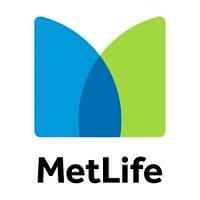
Junior Software Engineer
MetLife
Full-time
Remote friendly (Cary, North Carolina, United States)
United States
$50,000 - $75,000 USD yearly
Software & Technology
As a Junior Software Engineer, you will contribute to the development and support of software applications and platforms that help people build a more confident future. This is an ideal opportunity for new college graduates and early-career technologists passionate about building scalable, secure, and intelligent solutions. You’ll work in a collaborative, agile environment and gain exposure to modern software engineering practices and AI-enabling technologies.
How You’ll Help Us Build a Confident Future (Key Responsibilities)
- Assist in gathering and refining product requirements and user stories.
- Support the design, development, testing, and deployment of full stack software applications (UI, API, Data) while leveraging AI tools.
- Participate in peer reviews of code, solution designs, and configurations.
- Help investigate and resolve production incidents and service requests.
- Collaborate with cross-functional teams to identify innovative solutions.
- Contribute to the integration of AI capabilities into applications (e.g., GenAI APIs, ML models).
Required Skills
- A bachelor's degree in computer science, Information Systems, Engineering, or a closely related discipline is required.
- Internship or academic project experience in software development or AI/ML.
- Demonstrated ability to quickly learn and apply new skills to deliver high quality software as evidenced by academic or project experience.
- Proficiency in at least one programming language (e.g., Java, Python).
- Basic understanding of software design principles and coding best practices
- Familiarity with Database concepts, design, and development
- Familiarity with Azure DevOps and cloud-native technologies (e.g., Azure, AWS, GCP).
- Basic knowledge of secure coding practices and automated testing.
- Strong communication, collaboration, and problem-solving skills.
Preferred Skills:
- Understanding of Agile practices, DevSecOps, and CI/CD pipelines.
- Familiarity with tools like GitHub CoPilot, Azure DevOps
- Exposure to AI/ML and other technology concepts such as:
- Prompt engineering and LLM APIs (e.g., Azure OpenAI)
- AI SDKs and frameworks (e.g., LangChain, Hugging Face, TensorFlow, Semantic Kernel)
- Responsive UI/UX development
- Microservices